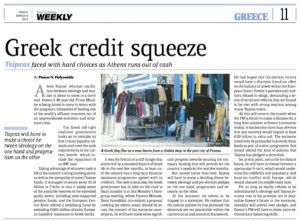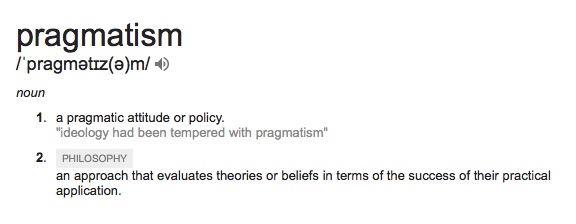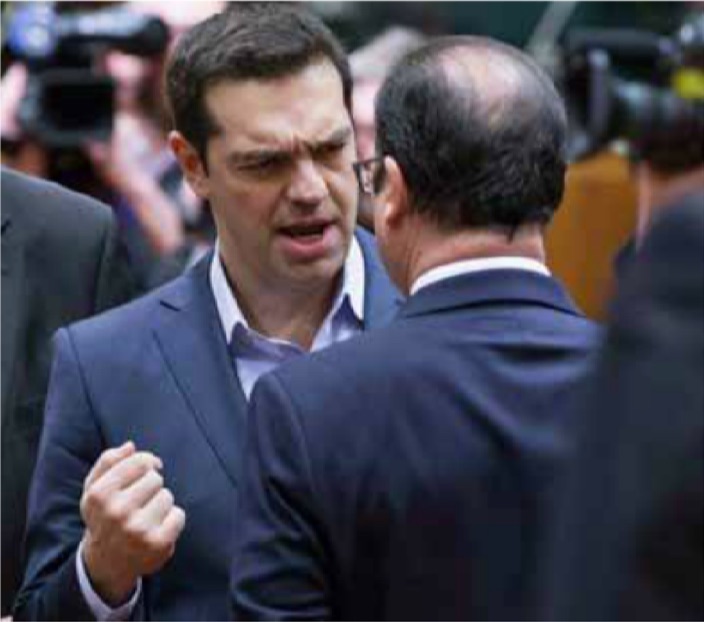Alexis Tsipras’s reluctant oscillation between ideology and realism is about to come to a sorry end. Greece’s 40-year-old Prime Minister is being forced to come to terms with the pragmatic necessities of leading one of the world’s affluent countries out of an unprecedented economic and structural crisis.
The Greek left-right coalition government looks set to overtake its first crucial liquidity obstacle and cover the cash requirements of the current month, which include the repayment of an IMF loan.
Taking advantage of whatever cash is left in the country’s ailing banking sector as well as the sympathy of some Chinese funds, it managed to secure some €1.14 billion in T-bills; to that it added some of the available reserves of the extended public sector, including state-supported pension funds; and the European Central Bank offered a stabilising hand by extending €500 million of extra European Liquidity Assistance to Greek banks.
It was the first act of a cliff-hanger that seems will be a standard feature of Greek life in the next few months, at least until the country has a long-term financial assistance programme agreed with its creditors.
The next crucial step the Greek government has to take on the road to fiscal stability is at this Monday’s Eurogroup meeting, where Finance Minister, Yanis Varoufakis, is to submit a proposal covering six reform areas; should he secure the consent of his eurozone counterparts, he will have made some significant progress towards securing the necessary funding that will provide for the country’s needs for the next few months.
But, sooner rather than later, Tsipras will have to make a deciding choice between ideology and pre-election pledges on the one hand, pragmatism and necessity on the other.
At the moment, he seems to be trapped in a stalemate. He realises that the radical policies he has promised the electorate are not practicable within the current social and economic framework. He had hoped that his election victory would have a dramatic knock-on effect on the balance of power within the European Union; Greece’s partners and creditors refused to oblige, demanding a series of structural reforms that are bound to be met with strong reaction among many Tsipras voters.
The PM will have to choose between a spectacular U-turn, which would undermine his credibility and popularity, and head-on conflict with Europe, which would alienate his middle-class base.
All this will come to the crunch when the PM is forced to make a decision for a long-term solution to Greece’s economic ordeal. It has become more than obvious that any recovery would require at least €20 billion in extra aid. The eurozone could only be persuaded to provide these funds as part of a strict programme that would extend the kind of policies that Tsipras has pledged to demolish.
So, at that point, not in the too distant future, he will have to choose between a spectacular U-turn, which would undermine his credibility and popularity, and head-on conflict with Europe, which would alienate his middle-class base.
For as long as reality refuses to be subordinated to ideology and Tsipras remains true to his promise not to jeopardise Greece’s future in the eurozone, necessity will prevail over pledges, and Greece’s PM will have to show some extraordinary balancing skills.





